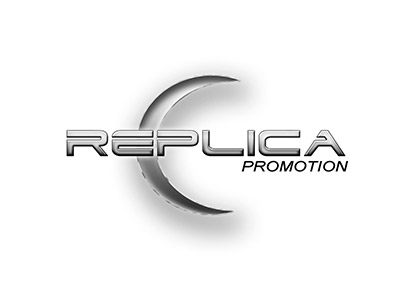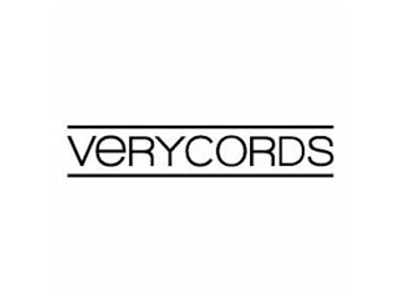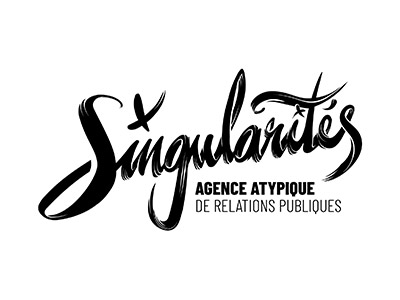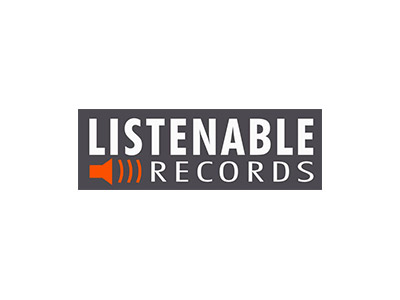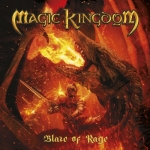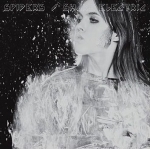Interview
ELUVEITIE (2014 - English Version) - Chrigel Glandzmann (Vocals, Flutes, mandolin)
 I feel really lucky today. I have the opportunity and the chance to meet the cool leader of ELUVEITIE, Chrigel. I wanted to talk about “Origins”, but not only the musical side, because lyrics are also really important for the band. And Chrigel is the good person to answer questions about Celtic cultures, themes, and iconology.
I feel really lucky today. I have the opportunity and the chance to meet the cool leader of ELUVEITIE, Chrigel. I wanted to talk about “Origins”, but not only the musical side, because lyrics are also really important for the band. And Chrigel is the good person to answer questions about Celtic cultures, themes, and iconology.We had a nice talk which went like this:
SBM: Hello Chrigel, and thank you for answering our questions! You’re back from the US tour and although you had to stop the Boston show because of the fire alarm, how did it go?
Chrigel (Laugh): Fine! Everything was really fine!
And now you’re back on the Old Continent, and most of the French shows are sold out. Was it something you were expecting?
I think you can never expect this you know and that’s that we’re doing, we don’t have expectations, but of course it’s always something you think it would be nice. So yeah we’re very happy and thankful for that of course.
I thought that on this tour you’d use your Honda stuff, because of the recent endorsement, but that’s not the case. It’s something quite unusual for a band, so actually how did you come to that?
Honestly I’m not even entirely sure. I think one of those guys started to talk to our manager, and the origin of the whole thing was that one guy, who is responsible for the promotion of Honda in Switzerland, is actually an ELUVEITIE fans, and they were looking for a new ways of promoting their cars and especially bikes. And that’s it, they were looking for an unusual way to present their bikes to new audience as well, I think that was the original idea.
And then we started talking with each other and we thought it was very good, the chemistry was really good and we spent good times together.
Yeah I was surprise at first but why not?
Well let’s talk a little bit more about “Origins” now… When I first heard the record I found it more aggressive, darker, with big melodic death metal riffs, do you agree with that?
Yeah absolutely, I really think so.
What’s the reason? Is it because of the topics or something?
Hum… Yes and no. On one hand, whenever I write a song, I do write the lyrics after the music but when I start writing the music, I decide what the song will be about, more or less, without having the concrete lyrics but I know what I’ll write about. So on each song I try to express the lyrical context on the music as well. So in that sense yes, it has something to do with the topics as well but it was not a decision or something. I haven’t consciously decided “Ok just let’s go to some more aggressive songs” or something like that.
You know when I write the songs, it’s always natural, an organic process, basically an intuition. It just kind of grows like that.
Yeah and on the other hand we have all these folk elements, the typical ELUVEITIE’s sound. And what I really appreciate is that all these instruments are well melted, it sounds so natural, and it never sounds cacophonic! (Laugh) How do you manage to do it?!
(Laugh) Thank you very much man! I’m happy if you think so.
Well I mean it! You have violin, flutes, hurdy gurdy, etc… but everything sounds so natural, and as I know that you write most of the songs, I’d like to know how you work on them.
Well actually if I would be free, no I cannot say that, I’m free but I always have to concentrate myself to not compose too much you know, I’d like to put in it a little more, I’m trying to not put in too many instruments or things but it doesn’t feel difficult or something, it just feels natural in a way, it feels like we belong together. And when I’m writing songs as I said it just kind of grow in my head but I always write everything together, I don’t write the guitars, and then what violin track I should try for it.
What is your musical background which allows you to compose all these things, when did you start music?
I don’t know I think that it probably has always been there. I remember I started an education in classical guitar; it was the first time I learned how to play music and it was 33 or 34 years ago. And since then I play music.
Some of ELUVEITIEs’ songs have borrowed some traditional folk melodies like the songs “Iris Mona” or “Luxtos”. Have you done the same thing on the album “Origins”?
Yes!
Is it on the song “Celtos”?
Yeah but, I mean there’s always quite a lot of traditional parts, at least. And “Celtos” contains, I think, three traditional tunes, but also “Origins”, “The Nameless” or “From Darkness”.
And why have you chosen the Gauls as inspiration this time? Last time it was the Helvetians.
It’s the same… the Gauls is just another word for “Celts”. The Romans called the Celts “Gauls” and the Greek word for it was “Celts”. So it means exactly the same.
And it’s the same topic for all our albums, that’s what ELUVEITIE is about: Celtic culture and history or Gaulish culture, as you want to call it, anyway it’s the same.
Thanks for the clarification man. This time you also did a lot a research about their cultures and beliefs. In the booklet you write, in the notes, that a lot of things can’t be found because druids didn’t write religious things. Were you, in a way, disappointed to have found no answer on this subject?
I wasn’t disappointed because it wasn’t something new; it’s a common knowledge, that’s just the way it is. A lot of knowledge about the Celtic mythology is just lost, that’s just the way it is. The Celtic culture is a bit like you said: the more you know, the more questions you have. Yeah that’s right (Laugh)
And you’ve chosen to write individual songs with a recurrent theme instead of a whole story. Have you ever hesitated to write, for example the story of the king you talk about in the song “King”: Anti…
Ambicatus.
Yeah thanks! So have you ever wanted to do such a thing?
Yeah maybe one day… But the thing is that there are some characters in the Celtic culture we know: Ambicatus for example. But today we don’t know that much about most of them. Ambicatus is a good exception because we do know quite a few things about him. That was not what “Origins” was about but I don’t know, maybe one day we could do something like that. Why not?
And for the cover you’ve chosen to represent the hammers’ halo of Sucellos. Why have you chosen this iconography instead of representing him as a human being?
As soon as I have finished the concept for “Origins” it was pretty clear that we wanted something very simple and probably almost abstract for the artwork and also something that kind of symbolizes the lyrical content. So I started working on some researches and I also worked with a professor from the Zurich University who’s specialized in Celtic arts because we also wanted something that is… painted or whatever in the style that the Gauls did back then.
But actually there are no symbols, something that kind of stands for Celtic spirituality. For example if “Origins” would have been a concept album on catholic religion it would have been the crucifix. But there is no symbol for Celtic spirituality. But the album is particularly about etiological tales which means origin myths and the whole mythology about, like where did the Gauls come from.
There are several stories, several myths about that and in most of the myths there is a Celtic god playing an important role in it. And today we don’t know the name of that god, it’s lost but there are many scientifical theses about who could this nameless god be. And the most established theses actually state that Sucellos was this nameless god that’s why we ended up with this Sucellos halo because in most of the Gauls original myths he kind of plays an important role and he’s like the… original father, the forefather...
The origins…
Yeah exactly! That’s why we did that.
There is a word often sung in the record: “Autumnos”, and it’s not explained in the booklet. I firstly thought that it was a god or a person, but after researches I found out that it come to the Gallo Britonic word “Ande-Dubnos”, which means “Underworld”. And it totally fits with the idea of the Gauls descending from a Chtonic god. Am I right?
Hum… Yes and no, actually it means “Otherworld” which is the Celtic equivalent of the underworld. You know Greeks and Romans had this underworld kind of concept, like hell or something. But the Celts didn’t have something like this; they didn’t have like heaven and hell, they just had the beyond. They called it “otherworld” or “Antumnos”, but for the Celts it also was the realm of the dead but it wasn’t something bad, in Celtic thinking darkness is not something bad, it’s actually the origin of everything and neither is death something bad.
So for the Celts it’s also the place beyond.
Where dead is just another step.
Yeah that’s a very good thing, and literally translated it just means “Otherworld”, the world of the gods, the world of the souls. If you die you leave on there in the otherworld and that’s also what the Gauls believed, that they actually came from there and Sucellos was their father, he was a god in this otherworld and stay originated from there, and they came from there to the Earth.
Do you like this philosophy? Does it, somehow, guide you in your life? A concept like “Death is not the end”?
Yeah, honestly, to me, the Celtic thinking does make a lot of sense, with many things, not only that, there are many aspects that are reasonable in my point of view.
Ok so thank you! And after this lesson of History I’d like to go back to the record. You’ve recorded the song “The Call of the Mountain” in the four languages of Switzerland. I think that this is really pretty cool, so how did it come to your mind?
It was an idea I’ve had in mind since many years already, but basically it was something just for fun. We had the idea and we thought that it would be cool so we wanted to do it for a song of “Helvetios” already but then we didn’t have time. So during the production of “Origins” this idea came up again and we had the time so we said “Ok let’s do it this time”.
My only regret is that Anna is the only one singing these four languages, I would have loved to hear you sing in French, do you think you could do it one day?
Honestly that was kind of an accident because we re-recorded it like a month later the record and I’m actually singing in the English version.
Really?
Yeah the chorus it’s actually me but it’s actually very high, a bit too high for me. I could do it but it was a little bit other my limits, I hardly manage to do it. But when we recorded the album, I was in the middle of the vocal recording process so my voice was warmed-up but one month later when I went back to the studio to record the four languages it just didn’t work anymore and we had just this particular day so it was my only chance: I record it now or never so I tried but it didn’t sound good.
Actually I was thinking more about a song like “The Nameless” or “King”, with grunt vocals.
You mean to make something like that in different languages?
Yeah exactly!
Hum that would be could yeah! Why not! Maybe one day!
I really hope so! And will you play this song tonight? And if you do it, will you perform it in French?
I don’t know yet (Laugh)
Surprise?
Yeah it’s a surprise for both of us; because we’ll ask the audience to decide in which language they’d like to hear the song, so we don’t know.
I hope they’ll choose the French one; it would be awesome for sold out French show!
Will you, in the years to come, release another full acoustic record or a live DVD?
Well I can tell you for sure that there will be a part 2 of “Evocation”.
Oh that’s great!
A DVD… I don’t know yet, we are thinking about something like that since quite a while already but there are no concrete plans. What we’ve decided so far is that if we ever release a DVD, we want it to be something special and very extended, not just like a live DVD…
With maybe a special show, with a whole orchestra or something?
Yeah maybe something like that, but also like… you know, a complete tour report, or tour reports from different continents and festival shows and a lot of behind the scene or whatever.
We actually started filming already on the US tour, we had a cameraman with us for one week but as I said we don’t have concrete plans, we’re just gathering materials and maybe one day we’ll see what we’ll do with it.
By talking about festivals, you were at the French festival “Hellfest” this year. Did you enjoy the festival?
Yeah it was great I’ve always wanted to play at the Hellfest!
So will you also be there next year?
I don’t think so… I don’t think they’ll book the same band two years in a raw…
It happens for some bands…
For some bands yes but it was our first time and I don’t think they’ll book us again… I don’t know but I don’t think so.
Ok so maybe the next year!
Tell me, do you have any personal projects beside ELUVEITIE?
Hum… some of us do. Anna has her own solo project which is simply called “Anna Murphy” and also, sometimes, she plays in other bands. But it’s always a matter of time; I do have my own solo projects as well, it’s purely traditional Celtic folk music, acoustic, I started this some years ago, something like 2010, during the European tour. My original idea was to have the album ready before this tour, and now it’s 2014 and I haven’t even started recording. That’s like it always goes but maybe one day… I hope.
And Päde, our bagpipe player and I actually still have this folk band that I founded about six months before I founded ELUVEITIE but the band hasn’t been active since six or eight years but we never officially split up so maybe one day we’ll record another album.
I guess you’ll always be busy!
And I also guess that we’ve reached the end of the interview so I leave you the final words if you want to conclude or say something to the French fans!
First of all: thank you for the interview…
You’re welcome!
And of course thanks t all the readers for being interested in our band! Thank you!
Thank you very much man!
Critique : SBM
Vues : 2768 fois

